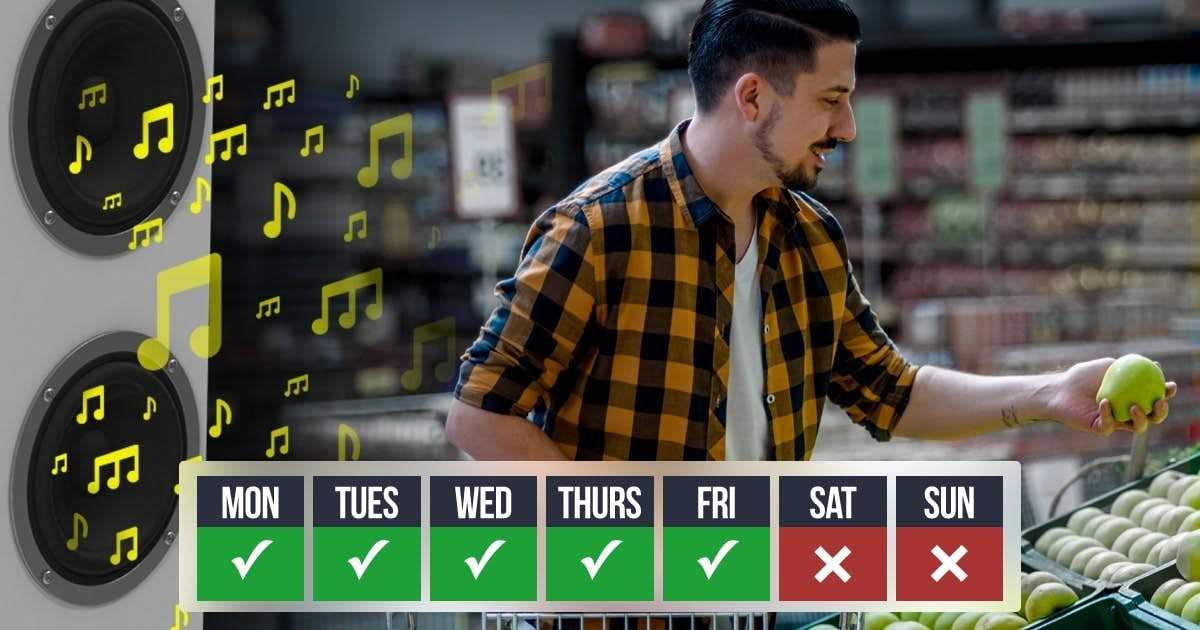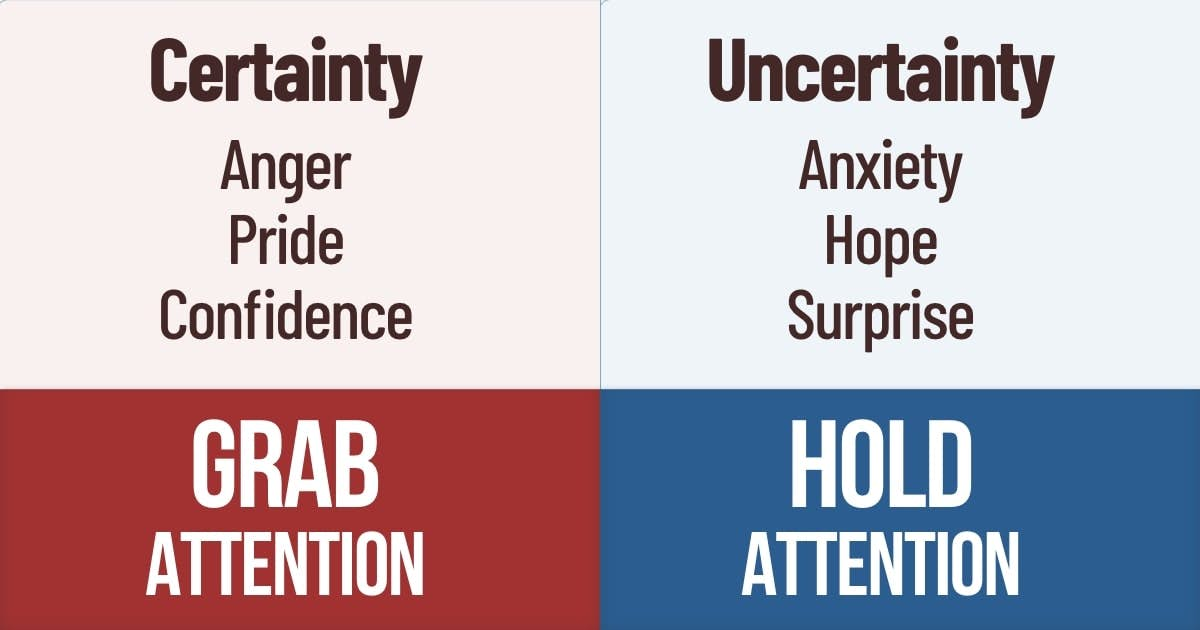Play In-Store Music on Weekdays
Music increases sales on weekdays only. Customers need a boost during weekdays because they're mentally depleted.

Overview
Life is exhausting. Especially during the week.
After a grueling day, people make decisions in a quick and mindless way — it's called System 1 processing.
In this mindset, music is persuasive. People feel good because of the music, and they assume these positive emotions are coming from the products: Hmm, do I want to buy these jeans? I feel good about it, so yes.
Researchers tested this idea with a retail chain in Europe. And they were right. Across four months, stores increased their sales up to 11% when they played different music (e.g., elevator music, popular songs). But it only happened on weekdays. This effect disappeared (and sometimes decreased) on weekends (Ahlbom, Roggeveen, Grewal, & Nordfält, 2022).

Certainty Grabs Attention, While Uncertainty Sustains It
Stimuli that grab attention should sustain attention too, right?
Not necessarily. In fact, these stimuli often lose attention faster.
For example, social media posts get more likes and comments when they contain emotional certainty (e.g., words like "always" and "forever"; Pezzuti, Leonhardt, & Warren, 2021).
But a new study found that uncertain emotions (e.g., anxiety, hope, surprise) are stickier. They sustain attention. Why? Because you want to resolve these uncertain feelings (Berger, Moe, & Schweidel, 2023).
Feel anxious about the weather? You'll check the weather more intensely.
Researchers modified the opening paragraph of a news article:
Recent stock market performance has made investors really [sad/ anxious/angry]. Most markets are down over 25%, the average American has lost tens of thousands of dollars, and many have [helplessly/nervously/furiously] watched as their retirement savings have dwindled. “I’m [heartbroken/worried/frustrated], said one New Jersey man, “my family is really [devastated/confused/bitter].”
The anxious framing kept the most attention. Participants were most likely to read the full article.
Other New Studies
- Music Activates Desire for Simplicity - Music boosts mood, but it also adds cognitive load. When a store plays music, customers prefer products with simple branding in order to minimize effort (Klein, Melnyk, & Völckner, 2021).
- Asking for a Rating Increases Conversions - Customers are more likely to convert if they're asked to rate a business, even if they don't actually rate the business. Perhaps they reflect on their experience, reinforcing a positive impression (Perez, Oestreicher-Singer, Zalmanson, & Rubin, 2022).
- Generating Content Strengthens Immersion - You often see backlash toward people who record events with their phones, presumably because they're not appreciating the live event. But generating content will strengthen your immersion and enjoyment of the activity (Tonietto & Barasch, 2021).
- Typing is More Persuasive Than Speaking - People are more likely to buy products when they search by typing, rather than speaking into a voice assistant. Each method induces a particular mindset: We associate typing with taking action, but we associate speaking with information gathering (King, Auschaitrakul, & Lin, 2022).
